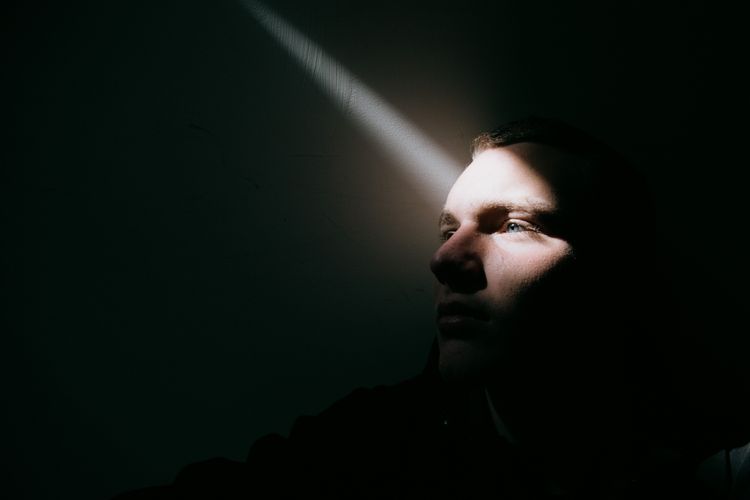Why Coddling is the Kindest Way to Harm Another Person

They call David Goggins the toughest man on Earth. He had something to say about coddling in his acceptance speech for the VFW Americanism award.
Teary-eyed, his voice started breaking when he thanked his mom. He said:
I’d like to thank my mom, who never picked me up when I fell. She taught me how to get up when I was knocked down.
What did she give him by letting him stand up on his own? And what gets taken away when you coddle someone?
Defining Coddling
Coddling is defined as “treating someone in an indulgent or overprotective way.”
When you love something, you want to protect it at all costs. This is a good and natural impulse.
And if you love a person, seeing them hurt could be the worse thing you ever experience.
To some, this means that no matter the situation, they need your help. Do not let them experience even one second of hurt or discomfort. Like Axel Rose said: “I’d hate to look into those eyes and see an ounce of pain.”
There are one thousand ways to coddle a person, but they all start with you assuming a position of power over them.
Here are some examples of coddling:
- Not telling a friend when they’re screwing up their life because you don't want to make them uncomfortable.
- Taking away a person’s responsibilities so they never have to lift a finger.
- Discouraging things like travel and spreading your wings because you fear for someone’s safety.
In almost every instance of coddling, it feels like you’re doing it out of love. Prevent pain no matter what — that’s what the coddler thinks love is.
And to an extent, they’re right. But what they don’t realize is the pain they are setting people up for.
What’s the Right Thing to Do?
I was having a conversation with a friend about giving money to homeless people.
We’ve both given money in the past, but sometimes, we’re not sure if it’s the right thing to do.
He gave an example of a woman he would always see asking for money next to a highway on-ramp. She would be there every morning at the same time. She was horribly overweight. He gave her money on a few different occasions.
But he noticed that, after a year, he found her in the same spot, doing the same thing. He had to think twice.
You don’t know what a person’s life situation is. You can’t possibly know what they’ve been through or how they ended up panhandling on the side of the road.
I’m not cynical about it. I know people need help to get on their feet. But sometimes I wonder: If panhandling were a person’s primary means of survival, and that stopped working one day, would they be forced to find another way?
If I give them money, am I coddling them? Am I what’s keeping them in this horrible cycle?
When you pass a homeless person, you just don’t know. I usually opt for thinking they need immediate help.
But coddling is most often a problem when it’s people you do know and you do understand their life situation. It’s most obvious in family dynamics, and that’s when it can be the most damaging.
The Oedipal Mother and Coddling
Sigmund Freud identified a psychological archetype that parents often adopt and embody. He called it the Oedipal Mother.
This is an all-devouring mother figure whose sole mission is to make her child her’s, and her’s alone.
Here’s what Jordan Peterson had to say about the Oedipal Mother:
The Oedipal Mother is a mother that gets too close to her children. And intermingles them with herself to too great a degree. That in her attempts to protect them, undermines them, fatally.
The Oedipal mother will:
- Take away any danger, challenge, and responsibility from a child.
- Never ask them to do chores.
- Shield them from any opportunity for growth.
- Train her child to be helpless, and convince them that the world is a dangerous place no one would want to be a part of.
- Discourage ever leaving the nest.
The underlying message of the Oedipal mother’s actions is: If I take care of you forever, you never have to leave.
I’m going to gimp you, and make you so soft and helpless so that you won’t be able to function in the world. It’s far too terrible and overwhelming for my sweet little baby to survive in. So stay with me forever, and I will always have a purpose.
Peterson notes again:
“‘I care for you so much. Let me do that for you’ — no. I don’t care for you at all when I say that. Not at all.”
When you treat someone like this, you’re taking away these fundamental experiences:
- Being able to stand on your own.
- Feeling confident and independent.
- Being capable of handling your own problems.
- Being able to grow and become self-defined.
- Having the inclination to expand outward and experience the world.
This is coddling at its most hideous.
And it’s all done in the name of love.
Coddling and You
David Goggins did not have an Oedipal mother.
Life was cruel to him (check out his life story), but he adapted and became who he is today. His mother didn’t harm him by not picking him up when he fell. She empowered him. Or more to the point, she let him discover his own power.
So, let’s make some distinctions:
Kindness and compassion are always needed in the world. Empathy, without a doubt, saves and restores people’s lives. But coddling is not empathy or kindness.
It’s someone exercising power over you. It’s not a privilege to be coddled, especially as a child.
If you had an Oedipal mother, or you were a victim of an extreme form of coddling, then you understand. But, where do you go from here?
What you need to do is raise yourself.
Choose challenges. Go out and learn and fail and expand, even if it’s things you should have been taught years ago. Face the fears you were raised to have. Discover that you aren’t helpless.
Give yourself what someone else couldn’t give you — a chance to stand on your own, reach your potential, and be a real person.



